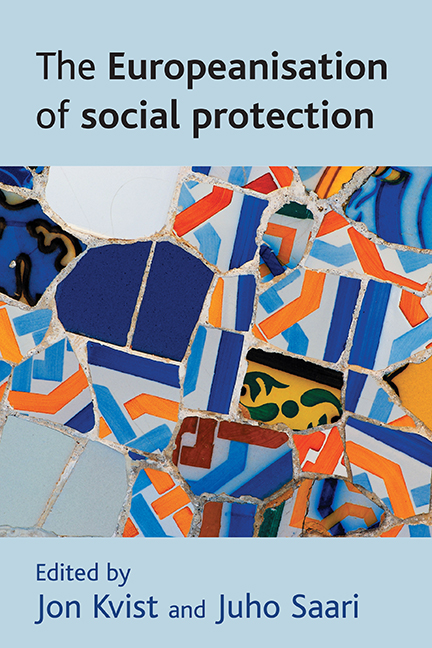Book contents
- Frontmatter
- Contents
- List of tables and figures
- Foreword: The European Union’s evolving social policy and national models – seeking a new balance
- Acknowledgements
- List of abbreviations
- List of contributors
- one European Union developments and national social protection
- two Germany: moving towards Europe but putting national autonomy first
- three The United Kingdom: more an economic than a social European
- four France: defending our model
- five Italy: between indifference, exploitation and the construction of a national interest
- six Poland: redefining social policies
- seven Spain: starting from periphery, becoming centre
- eight The Czech Republic: tradition compatible with modernisation?
- nine Finland: towards more proactive policies
- ten The Netherlands: social and economic normalisation in an era of European Union controversy
- eleven Denmark: from foot dragging to pace setting in European Union social policy
- twelve Greece: the quest for national welfare expansion through more social Europe
- thirteen The Europeanisation of social protection: domestic impacts and national responses
- fourteen Seeking a new balance
- References
- Index
seven - Spain: starting from periphery, becoming centre
Published online by Cambridge University Press: 15 September 2022
- Frontmatter
- Contents
- List of tables and figures
- Foreword: The European Union’s evolving social policy and national models – seeking a new balance
- Acknowledgements
- List of abbreviations
- List of contributors
- one European Union developments and national social protection
- two Germany: moving towards Europe but putting national autonomy first
- three The United Kingdom: more an economic than a social European
- four France: defending our model
- five Italy: between indifference, exploitation and the construction of a national interest
- six Poland: redefining social policies
- seven Spain: starting from periphery, becoming centre
- eight The Czech Republic: tradition compatible with modernisation?
- nine Finland: towards more proactive policies
- ten The Netherlands: social and economic normalisation in an era of European Union controversy
- eleven Denmark: from foot dragging to pace setting in European Union social policy
- twelve Greece: the quest for national welfare expansion through more social Europe
- thirteen The Europeanisation of social protection: domestic impacts and national responses
- fourteen Seeking a new balance
- References
- Index
Summary
The European Union (EU) means a lot to Spain. It bears a symbolic value of belonging and identifying with an advanced and modern geographical area. Such a feeling is deeply grounded in historical reasons: Spain was and felt apart for centuries, probably since the decline of the empire, but much more so during the 40 years of the Francoist dictatorship (1939-75). Thus Spain has been an enthusiastic and respectful Member State. Nonetheless, its acute consciousness of backwardness (much more subjective than objective) has also pushed Spain into proving at all times that it is also a deserving Member State, very able to do its homework properly. This belief does not preclude an absence of criticism or occasional disenchantment; even the best marriages have well-kept secrets, disagreements and a certain dose of indifference.
The present socialist government (PSOE) claims that a significant shift in international relations has occurred since its victory in the March 2004 general elections. While the conservative Partido Popular (PP), in office from 1996-2004, was most respectful of the EU social and employment guidelines and norms, its decision to support George Bush and Tony Blair in the Iraq war was interpreted by the socialists as giving the EU the cold shoulder. As soon as PSOE was back in office, in 2004, public discourse changed sharply, with the declared aim of recovering good relations with the EU, especially Germany and France. The new government clearly showed its coldness in official activities with and declarations towards the US, and a parallel warming towards EU Member States, considered its ‘natural allies’. Spanish troops were withdrawn from Iraq in June 2004, only a few months after the elections. Likewise significant of the new government's orientation is that, to show its reinforced European vocation, the Spanish Parliament confirmed the European Constitution as early as February 2005 and a successful referendum was held in May 2005. It is in this climate that the opinions of the present Spanish government should be judged.
As to sub-national levels of government (as with other Member States), Spain is a deeply decentralised country. Autonomous regions and governments hold their own views on EU policies, especially in the social policy areas where they have competence, that is, health care services, education, social services and housing.
- Type
- Chapter
- Information
- The Europeanisation of Social Protection , pp. 117 - 136Publisher: Bristol University PressPrint publication year: 2007



